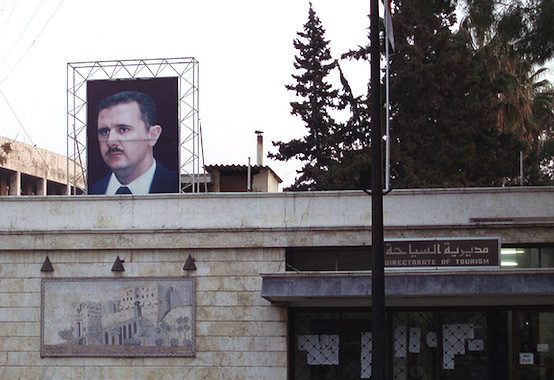The Reckless “Kill Assad” Option

While the Obama administration prepares its foolish military action in Syria, Bret Stephens suggests trying to kill Assad:
As it is, a strike directed straight at the Syrian dictator and his family is the only military option that will not run afoul of the only red line Mr. Obama is adamant about: not getting drawn into a protracted Syrian conflict. And it is the one option that has a chance to pay strategic dividends from what will inevitably be a symbolic action.
It is hardly news that the U.S. has had a poor track record of assassinating foreign leaders, so it seems odd to devote much energy to arguing in favor of trying this again. U.S. and allied forces tried to kill Hussein in the first week of the Iraq war, and they tried the same thing two years ago against Gaddafi without success while pretending that they weren’t attempting to kill him. The earlier strikes on Tripoli in 1986 also missed their intended target. If there was ever a serious attempt at killing Milosevic in 1999, that was also unsuccessful. What makes Stephens thinks that his recommendation is realistic?
Setting aside the problem that it is illegal for the U.S. to do what Stephens wants, would this achieve what he claims? Would it help bring the conflict to an end? The answer to this question is no. The forces fighting for the regime are not just fighting because Assad and his family happen to be in power and tell them to, but because they believe their own survival is at stake. The Wall Street Journal reports today on the development of an Alawite militia over the last year:
The defense force is part of a metamorphosis the Assad regime has undergone in the caldron of war. The regime has mobilized state resources—money, arms, control over key commodities such as wheat, fuel and even international aid—to fortify its core Alawite constituency and allied minority groups for what it believes will be a protracted sectarian battle.
Even if Assad and his immediate circle of allies and advisers disappeared tomorrow, regime forces such as these would still have their own reasons to continue fighting under new leadership. One of the persistent flaws in hawkish thinking about foreign conflicts is that the foreign strongman is treated as the embodiment of everything wrong with the country, and consequently hawks tend to think that by removing the strongman the country’s problems will be remedied very easily. Killing off the leadership of the regime likely wouldn’t hasten the end of the conflict.
Would killing Assad prevent the U.S. from being drawn into the conflict? That seems implausible. If the U.S. killed regime leaders, it would probably invite retaliation that sooner or later would make U.S. involvement in the conflict almost unavoidable. Having taken the dramatic step of striking at the top levels of the Syrian government, would the U.S. then be content to leave Assad’s successor in peace? Not very likely. Stephens’ proposal is a recipe for sucking the U.S. deeper into an intense sectarian conflict.
Comments